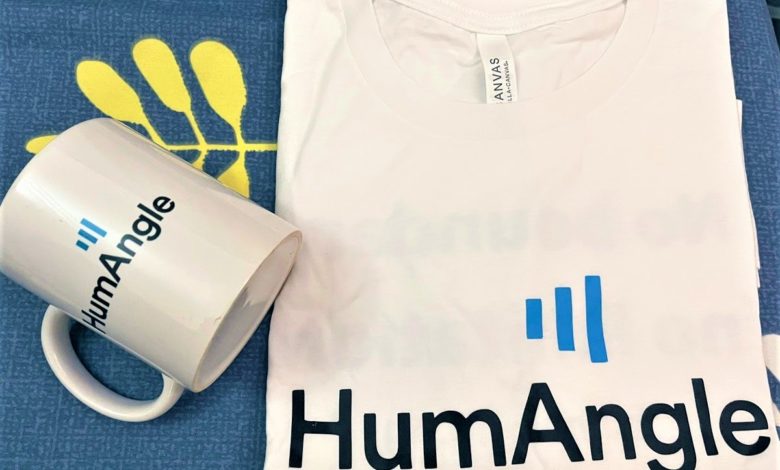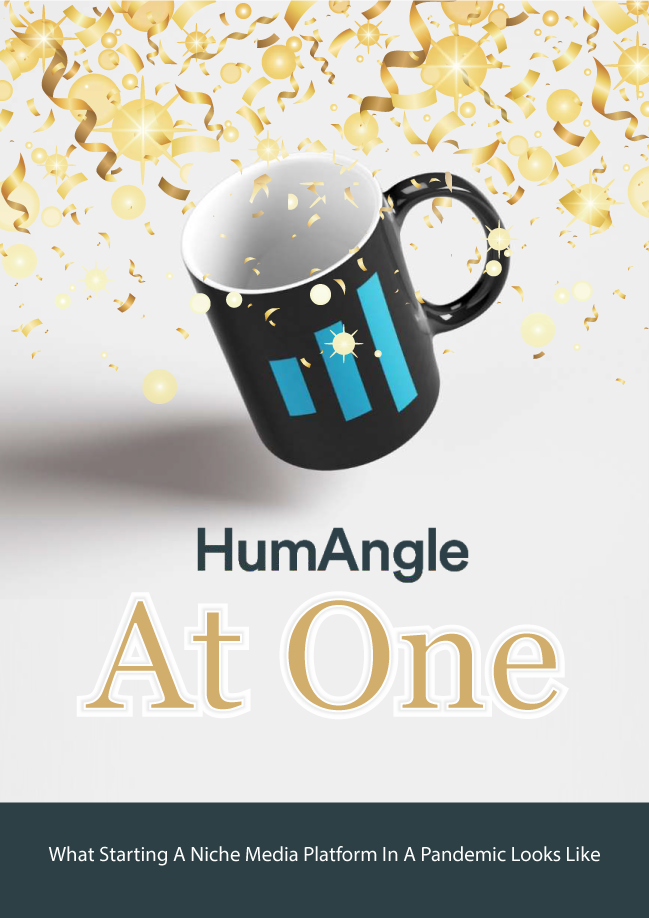One Year Of Reporting At HumAngle And Why We Should’ve Started Sooner

Gapsㅡ
It doesn’t take time to realise those are the most fundamental problems we face in Nigeria and, of course, many parts of Africa. Gaps in law enforcement and the criminal justice system. Gaps in school enrollment, curriculums, and actual learning. Gaps in tax collection. Gaps in voter registration and voter turnout. Socioeconomic gaps between the rich and the poor, between electors and the elected, and 101 other parallel groups.
What we do not talk about enough are gaps in reporting. More specifically, the focus and depth of reporting.
Nigeria is home to great journalism. We have some of the largest newsrooms in the region. Our reporters go the extra mile to clinch highly coveted international media awards every year. Despite challenges with press freedom and lack of financial independence, we still manage to churn out plenty of critical pieces. But, as with almost every sector, there has always been something amiss in the media space.
A little over a year ago, when I got the opportunity to be part of HumAngle, I immediately saw it as a means of filling a significant part of this void. Why not? If the Global Peace Index were a huge pot of jollof rice and all the countries of the world lined up to get a share based on how secure they were, Nigeria would be at the end: 147 out of 167 people on the queue. If there were any rice left when it got to our turn, it would be some of those burnt portions scraped from the bottom.
Nigeria is home to numerous cracks in security, with every region having its species of conflict. The decade-old Boko Haram insurgency in the Northeast has led to the emergence of one of the world’s worst humanitarian crises. Security is not just another theme like education or health or finance; it has become so important we just cannot delay properly addressing it a moment longer. Only the living have the luxury to worry about lingering health conditions, access to education, and the gross domestic product.
So, it was high time a media organisation sprung up to expertly document the causes and effects of the country’s conflicts and caution against potential crises before events spiralled out of control.
As an investigative reporter, my job was laid out for me: visiting conflict-ravaged regions, interacting with victims, and telling their stories as accurately and interestingly as I could. My shoes were dusted, and my phone’s memory was cleared. I was warming up to hit the road. Then, as you would have guessed, COVID-19 dropped its anchor on the shores of Lagos in late February.
I was confined to my studio apartment in Abuja for many months before the lockdown protocol was relaxed. The pandemic took centre stage. Journalists who had worked on investigative stories delayed publishing them because all the country cared about was this strange infection that has suddenly made us sceptical of the slightest coughing. And those who wanted to go to the field for in-depth reports either had to repurpose their trips to fit into the pandemic or suspend their plans. That is even if you still had a job months into the crisis.
Meanwhile, the pandemic presented an opportunity to highlight issues such as the poor treatment of frontline health workers, worsening food insecurity, how the spread of misinformation was affecting the country’s response to the crisis and the availability of essential drugs, how Nigerians living with HIV coped during the period, how non-essential workers could bribe their way through getting lockdown exemption in Abuja, and so on.
Finally, on Saturday, Sept. 26, I boarded a plane going to Maiduguri, capital of Borno State, and did not return to Abuja until Tuesday, Oct. 13. Within those two and a half weeks, I interviewed 16 people—mostly IDPs, gained a much better understanding of the insurgency from different perspectives, took over 500 pictures, and set a personal record of the longest kaftan-wearing streak. In that period, End SARS demonstrations ignited across the country, especially in the southern region. I followed the developments intently from my Twitter account as I clung to tricycles jetting through Maiduguri’s dusty roads. It was a lot to handle, immersing oneself in stories of grief and loss, both online and offline.
When I returned to the capital city, the first report from the trip I had published was about Adam Modu. His health was treated negligently by prison authorities despite having been diagnosed with abdominal tuberculosis for several years. Less than a month later, we published the extraordinary story of 25-year-old Balu Agah, a displaced woman abducted by Boko Haram while on a mission to fetch firewood and, while pregnant for one of the insurgents, managed to escape.
On Sunday, Nov. 29, we published the first part of the ‘The Deradicalised’ series, which looks at former clients’ various experiences of the federal government’s deradicalisation programme, Operation Safe Corridor. We have since gone on to release three other parts and are set to release a fifth.
Many friends have acknowledged that reading these stories broadened their understanding of the crisis too, as listening to them did mine. And I hope, at HumAngle, we can report and publish a great many more stories that will do just that—demystify the insurgency and other conflicts; bring attention to the deep, underreported problems left in their wake; and ensure that as a people we learn from the mistakes of the past as we draw blueprints for the future.
The visit to Maiduguri crystallised my conviction that assumptions, half-truths, and screaming headlines will not help us in solving our problems. We rather need a deep understanding of the issues driven by curiosity and bravery and patience and humility, conversations driven by journalists who embody these virtues.
We need institutions, like HumAngle, whose calling is to tell these stories because the more they do so, the better at it they get. We need a gang of people who sacrifice their biases and impulses on the altar of peace and security as they narrate balanced stories of victories and defeats, fears and hopes, displacements and disappointments, gains and losses, births and deaths. We need journalists dedicated to diving beyond what is obvious to what is true about soldiers’ experiences, grievances of civilians, governments’ efforts, and the lives of displaced people.
We do not need multinational corporations to tell our stories for us when those fighting at the war fronts and getting gunned down or macheted for no fault of theirs are our brothers and sisters, our neighbours and business partners.
Continue reading …
Support Our Journalism
There are millions of ordinary people affected by conflict in Africa whose stories are missing in the mainstream media. HumAngle is determined to tell those challenging and under-reported stories, hoping that the people impacted by these conflicts will find the safety and security they deserve.
To ensure that we continue to provide public service coverage, we have a small favour to ask you. We want you to be part of our journalistic endeavour by contributing a token to us.
Your donation will further promote a robust, free, and independent media.
Donate HereStay Closer To The Stories That Matter





